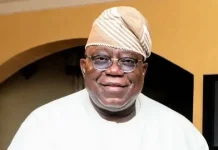🌿 Ruzu Non-Alcoholic Herbal Bitters
Ruzu Non-Alcoholic Herbal Bitters is a natural health supplement specially formulated to:
- ✅ Promote general wellness
- ✅ Detoxify the body
- ✅ Support the treatment of various ailments
Made from a powerful blend of 100% organic and medicinal herbs, Ruzu is completely alcohol-free, making it ideal for:
- 👪 All age groups
- 🌱 Health-conscious individuals
- 🌿 Anyone seeking non-alcoholic herbal remedies
Whether you're looking to boost your vitality, cleanse your system, or support healing the natural way, Ruzu Bitters offers a trusted herbal solution.
Thousands of Nigerian students take the JAMB exam each year in the hopes of getting into the university of their dreams. However, not everyone receives high marks. Don’t freak out if your score was less than 180 or even 160. There is yet hope for you.
With cut-off scores of 150 and even 140, a number of federal, state, and private universities accept students with low JAMB scores. Even if your JAMB score isn’t as good as you had planned, you can still apply to the ten universities listed in this post.
1. Gadau’s Bauchi State University (BASUG)
One of the universities that welcomes students with lesser scores the most is BASUG. A JAMB score of 140 or higher is accepted by the institution in numerous fields, including Agricultural Science, Sociology, and Education. If you want to study in a peaceful setting in the North, this is a fantastic choice.
2. SSU, or Sokoto State University
Students with JAMB scores of 140 or higher are admitted to SSU, particularly for studies in political science, history, and education. This government-owned university is renowned for its easy admissions process and welcomes students from a variety of backgrounds.
3. The Aliero campus of Kebbi State University of Science and Technology (KSUSTA)
Although it focuses on science, this university also provides business and social science courses. The minimum JAMB score required by KSUSTA is 140, depending on the course. Students who wish to take courses in science, technology, or agriculture will find it suitable.
4. Birnin Kebbi Federal University (FUBK)
One of Nigeria’s more recent federal universities, FUBK, provides excellent opportunities to students with scores as low as 140. With lesser scores, sociology, languages, and history courses are more accessible.
5. Jalingo’s Taraba State University (TASU)
The fact that TASU accepts students with JAMB scores as low as 140 is well known. Candidates with poor scores are particularly eligible for courses in library science, public administration, and education. For kids in the Northeast, it’s a top option.
Read Also:Breaking: Federal Government Cancels Democracy Day Parade Scheduled for June 12
6. Bokkos’ Plateau State University (PLASU)
PLASU is situated amid Plateau State’s serene highlands. other departments accept 150 to 160, but other competitive courses want 170. This is a fantastic place for students who are interested in the arts, education, or social sciences.
OAUSTECH, Okitipupa, Olusegun Agagu University of Science and Technology
This institution, formerly known as OSUSTECH, specializes in scientific and technology courses. Depending on the competition, some courses, such as Biological Science, Industrial Chemistry, and Fisheries, allow JAMB scores as low as 160.
8. ADSU, Mubi, Adamawa State University
It is well known that ADSU accepts students with poor JAMB results. Students with a score of 140 or higher are likely to be admitted, particularly to programs like business, sociology, and education.
9. Jigawa State’s Federal University, Dutse (FUD)
Another federal university that accepts applicants with a score of 150 or higher is FUD. It provides classes in management sciences, agriculture, and the arts. FUD is a wonderful choice for students looking for a federal university with lax scoring criteria.
10. Zamfara State’s Federal University, Gusau (FUGUS)
Another university that welcomes students with low JAMB results is FUGUS. Some departments accepted candidates with JAMB scores as low as 150 for the 2024–2025 school year. This range is particularly available in courses in the social sciences, education, and the arts.
















